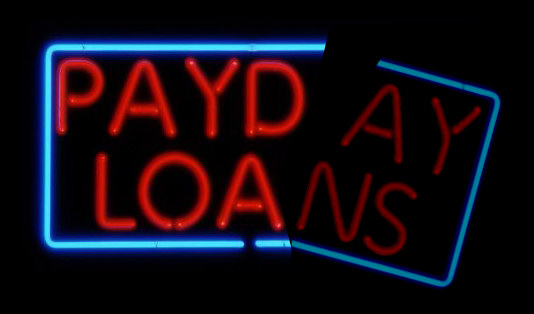
Gary Rivlin's book "Broke USA" describes Sandra Harris, an accounting technician who borrowed $200 from a payday lender to pay her car insurance after her husband lost his job. Eight thousand dollars in fees later, the couple ended up losing the car and only avoided eviction because of a sympathetic landlord.
Mrs Harris is hardly alone. About 14 million households in the US (out of 110 millions) visited a payday lender in 2008, borrowing a combined total of more than $40 billion in installments of $200 to $800.
"Broke USA" also describes the endless whack-a-mole game played by organizations and individuals working to protect consumers from the abusive practices of payday lenders and check cashers.
What the book missed is how certain companies in the prepaid payment cards industry are cozying up to payday lenders. Many payday lending outlets now sell prepaid cards with loans at interest rates above 450%.
Various states are introducing bills to cap payday loan interest rates. But protecting consumers will remain an uphill battle as long as there are no better alternatives for consumers. After all, using a payday lender to pay bills on time may still be a better option than late fees and bank overdrafts charges. "We're less bad" (than the big banks) has been the payday lenders' argument. Worse, some of the large banks are actually funding payday lenders.
A viable alternative to payday loans will announce its commercial launch at the Finovate conference in New York on October 4 and 5. It's a start-up called BillFloat, which extends small dollar loans of up to 30 days to pay certain bills at a fraction of the cost of payday lenders. The BillFloat service fee is comprised of a bill payment fee and interest of 3% per month on the loan, with applicable convenience fees. Introductory rates as low as $4.95 are currently being offered. For example, a $200 bill extended by 30 days will incur a $12.50 fee instead of the $75 or so that a payday lender would charge.
Rather than providing you with short-term cash, BillFloat pays your actual bill, and you pay them back within 30 days. This is a more streamlined and responsible way to handle a bill payment if you're short on cash. Also, BillFloat does not drag people into a downward spiral of endless debt: the advances cannot be repaid by getting further advances.
Because BillFloat offers better terms and more convenient, online access than payday lenders, I believe it will offer a compelling alternative for consumers facing a cash crunch. The product's success will depend on how well it delivers the service, and how carefully the company handles the credit risk.
I am personally interested in helping BillFloat reach under-banked and un-banked consumers, who are payday lenders' easiest targets. So, my company, Plastyc, which has many unbanked customers, will demonstrate at Finovate how a customer of Plastyc's UPside Visa Prepaid card can use BillFloat to seek an extension to pay a bill, directly from within his or her prepaid card account. The history of prior card transactions will help establish the trustworthiness of the customer and help BillFloat decide whether to grant or decline the extension immediately. Customers automatically repay BillFloat from their prepaid accounts at the end of the extension period.
My company has no financial interest in BillFloat other than offering customers access to a useful service, but I can't wait until BillFloat is available to millions of people who might otherwise turn to payday lenders.